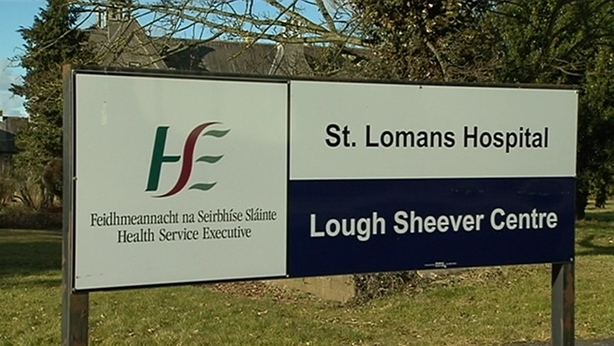A Medical Council inquiry has found a doctor in psychiatry guilty of poor professional performance on several counts.
Dr Muthulingam Kasiraj, also known as Dr Sripathy, was a senior house officer at St Loman's Psychiatric Hospital in Mullingar for six months from July 2013.
He was found not guilty of professional misconduct.
A decision on any sanction will be made at a later date.
The committee found that a medical condition of Dr Sripathy's, if present, did not contribute to the issues.
At the resumption of the inquiry today a number of allegations were dropped and others amended.
Expert witness Dr Paul Scully, consultant psychiatrist at St James's Hospital, told the inquiry today that Dr Sripathy's inability to perform a neurological examination on a patient was a serious failing.
He said this was a basic task for a doctor.
At the inquiry, it was alleged that Dr Sripathy did not show an understanding of how to manage a basic medical emergency, cardiopulmonary resuscitation (CPR), or the difference between a branded or generic drug.
It was also alleged that he wrote up the wrong doses of drugs, however no patients were harmed.
It was alleged that he did not understand some common medical conditions such as malignant melanoma (skin cancer).
The inquiry previously heard that Dr Sripathy was later diagnosed with anankastic personality disorder, which he claims affected his performance at the time in question.
Dr Scully said that Dr Sripathy's lack of understanding of what to do in a medical emergency was "a serious failing".
He said this was something that was part of basic medical education.
Dr Scully said Dr Sripathy also failed to express adequate concern in a letter to a patient's GP, given the patient reported hearing voices.
He also said Dr Sripathy was responsible for incomplete note taking, failing to adequately assess patients and prescribing medicines when he did not know what they were for.
He said it was very surprising Dr Sripathy did not understand the effects drugs can have on the liver and it raised questions about the quality of his learning.
Dr Scully also said it was very concerning that Dr Sripathy was unable to interpret simple blood tests, such as a full blood count.
Dr Scully said Dr Sripathy was "out of his depth".
He also said that anankastic personality disorder would not account for his behaviour at St Loman's.

St John of God Hospital clinical director, Dr Richard Blennerhassett, told the inquiry he had a consultation with Dr Sripathy on 19 December 2014.
He said there were limitations to his medical opinion on Dr Sripathy as it was based on a once-off meeting and he had limited information on the issues at St Loman's.
Dr Blennerhassett said he found Dr Sripathy had an underlying obsessional personality make-up.
He said people with this, who come under stress, can tip over.
He said Dr Sripathy managed to leave India and attend medical school and come to Ireland to work.
He was thrown into general adult psychiatry and seems not to have been able to cope.
Dr Sripathy may also have found it difficult to seek help from colleagues.
He said the allegations were worrying.
Dr Blennerhassett said he was not suggesting that an obsessional disorder would explain why a doctor would prescribe incorrectly, or fail to properly assess patients.
He said there may be a question about Dr Sripathy's level of medical knowledge and he may also experience significant stress, due to the obsessional nature of his personality.
Dr Sripathy told the inquiry that his medical degree is valid and has been checked by the Medical Council.
He said he had written over 2,000 letters to GPs on patients at St Loman's and he may have made a few mistakes, which is human nature.
He said errors can happen with dictation and he was sorry he did not check all the letters.
Dr Sripathy told the inquiry this does not equate with a lack of knowledge.
He said his failure to do a neurological examination in one case was because the patient was an involuntary admission.
Dr Sripathy said some consultants at St Loman's had assumed he lacked medical knowledge but this was due to misunderstandings.
He said he was more concerned that patients would not have to wait, than sometimes spend time answering medical questions.
We need your consent to load this rte-player contentWe use rte-player to manage extra content that can set cookies on your device and collect data about your activity. Please review their details and accept them to load the content.Manage Preferences

